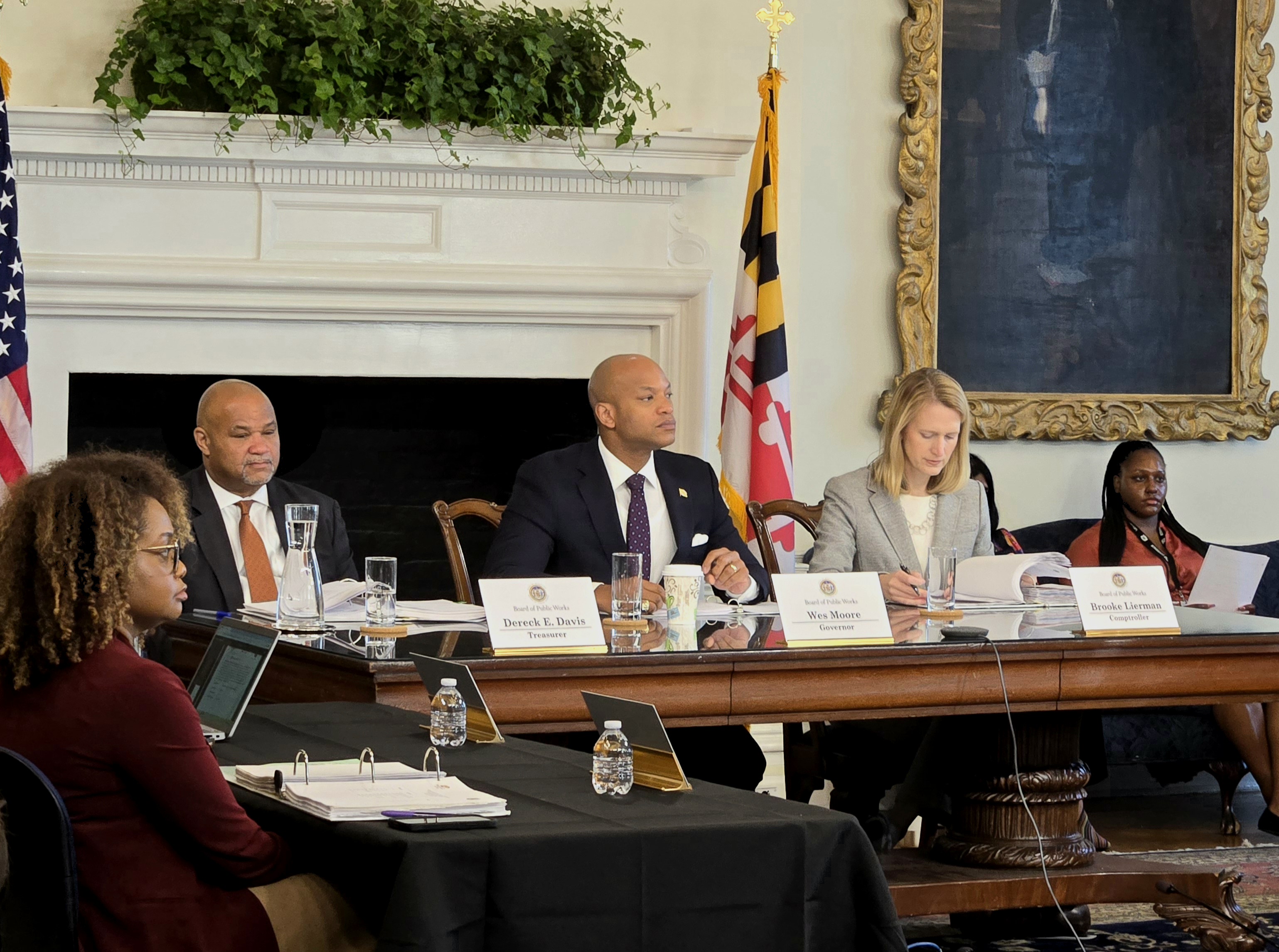ANNAPOLIS – Top state officials approved a $3.4 million bond to revamp affordable housing in Columbia while maintaining their commitment to sustainability and clean energy.
The project targets Maryland citizens in Columbia who make between 30% and 60% of the area’s median income, with a mix of one, two and three-bedroom units in the apartment complex, said Gov. Wes Moore.
“This is really revolutionary work that’s already showing significant impacts for a lot of families,” Moore said. “We are working this, united, to address an issue that we know is a very real issue for a lot of families and a lot of communities all throughout the state.”
The project will demolish the existing 62-unit housing in Waverly Winds, replacing it with a new 68-unit apartment complex for rent, according to Board of Public Works documents.
The community, located in Howard County, serves to provide affordable housing to underserved communities that have fewer housing opportunities.
As of 2018, Howard County had the highest cost of living index, as well as the second-highest median sale price of a home, according to the Maryland Department of Commerce. State officials are working to combat these high numbers with expanded access to and support for affordable housing.
“[It is] based totally on considerations of merit and need, and they are being distributed equally across communities all across the state,” said Moore. “It’s a very targeted program about the families that we’re hoping to build for and that we’re hoping to serve. And it’s going to do a great deal to be able to address the affordability challenges that we know a lot of families continue to face.”
Maryland has spent over $132 million in state bonds to expand access to affordable housing in the state, said Moore, creating almost 4,000 units of affordable housing since his inauguration as governor in January 2023.
Moore has worked to improve affordable housing in Maryland in response to the 96,000 unit housing shortage in the state. He has signed multiple bills into law that worked to reduce the instability of prices, increase the affordability of units and improve renters rights.
State funding for this project makes up one of 13 funding sources, amounting to $31.4 million in total, according to Board of Public Works documents.
The project intends to reduce the greenhouse gas emissions from the new apartment building, as well as save energy and promote water conservation. It will use energy-efficient materials, stay in compliance with energy guidelines, restrict the use of certain chemicals and install solar panels to be used in addition to common area electricity.
“It includes a number of sustainability measures that would align with the state’s commitment for reducing greenhouse gas emissions,” said Moore, “Continuing to show that … we do have an ability to be aggressive when it comes to adding additional housing options, and that does not mean compromising a larger idea that the state needs to move forward and make sure that you have a cleaner and greater state as well.”

